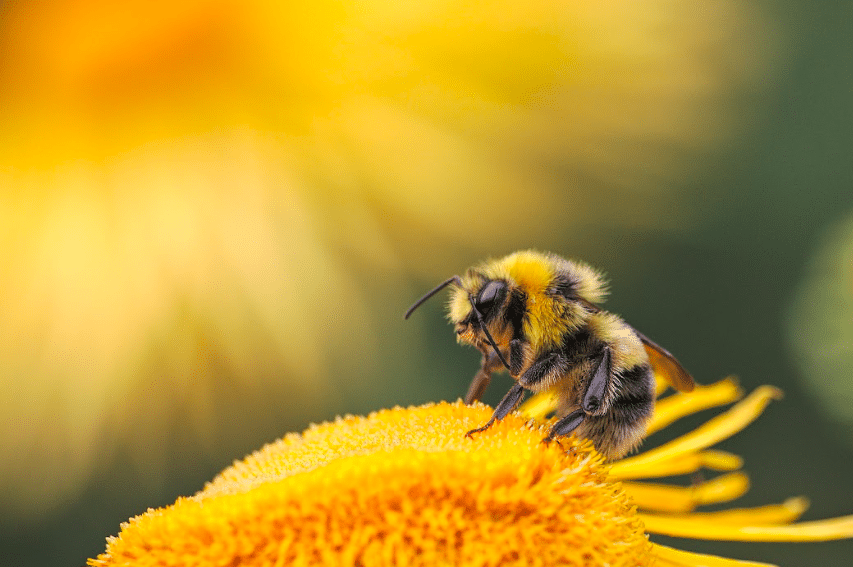Over the past few years, concerns about the impact of electromagnetic waves on the environment and living organisms have grown considerably. Among the many species potentially affected, honey bees have become a critical point of research because of their crucial role in pollination and ecosystem balance.
A study carried out at the Beekeeping Application Center of the University of Bayburt in 2017 sheds light on the disturbing influence of electromagnetic fields (EMF) on the behavior of bees, revealing possible implications on their navigation and food search. Honeybees are known to use the Earth’s geomagnetic field to determine their direction and return to their hives after foraging. Honey bees are known to use the Earth’s geomagnetic field to determine their direction and return to their hives after foraging.
However, with the rapid proliferation of electronic devices and mobile towers emitting electromagnetic radiation, artificial EMF fields are increasingly invading the natural environment of bees. This interference raises serious doubts about their ability to maintain a sense of orientation and communication, thus influencing their foraging habits and, ultimately, the health of their hives.
The study, led by researchers from the University of Bayburt, was intended to investigate the influence of EMF and electric fields on bees’ behavior. The researchers used Helmholtz coil equipment to generate different EMF values, ranging from 0 μT to 200 μT. Petri dishes filled with sugar syrup were placed inside the coils to attract bees and observe their reactions to different intensities of EMF. Results were alarming. Bees visited the food sources placed in the different EMF set-ups to varying degrees, with the greatest number of visits observed in the set-up with 0 μT of EMF and the least number in the set-up with 200 μT of EMF. In addition, the time spent by bees at the food source has varied significantly, with the longest duration recorded in the set-up with 0 μT of EMF and the shortest in the set-up with 200 μT of EMF. These findings underline the obvious influence of electromagnetic radiation on the behaviour of bees. It appears that bees are highly affected by EMF and electric fields, which could interfere with their innate navigational abilities and reduce foraging efficiency.
Environmental impact
Implications of these findings go beyond bees’ welfare. As crucial beings for pollination, bees play a vital role in agriculture, contributing to the fertilization of numerous crops, including fruits, vegetables and nuts. The loss of their ability to navigate accurately could lead to a decrease in crop yields, affecting food production and threatening global food security. In addition, the overall health of ecosystems could be compromised if bee populations decrease due to exposure to human EMF. As pollinators, bees facilitate the reproduction of flowering plants, ensuring biodiversity and maintaining healthy ecosystems.
Towards Sustainable Solutions
Since concerns about the impact of electromagnetic radiation on bees continue to increase, urgent action is needed to safeguard their well-being and our environment. Stricter regulations and responsible management of electrical devices and infrastructure could help mitigate potential negative effects. Furthermore, supporting research and investing in innovative technologies to reduce exposure to EMF could be the key to preserving the invaluable role bees play in our ecosystem.
In conclusion, the study conducted at the Beekeeping Application Centre of the University of Bayburt offers valuable insights into the disturbing effect of electromagnetic radiation on bee behaviour. Results act as an alarm bell to protect these essential pollinators and, consequently, the entire ecological balance on which our planet is based. As we advance, it is crucial to adopt sustainable practices that protect both nature and our well-being. Let us work together to ensure a thriving future for the bees and the environment they support.
